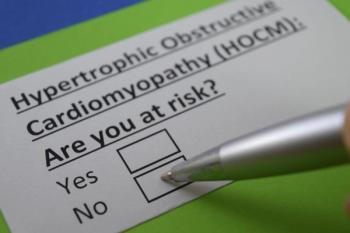
Efficacy of Prescription Vs OTC Fish Oil Products
What pharmacists and providers need to know to counsel patients on when discussing the use of prescription or over-the-counter fish oil supplement as treatment for dyslipidemia and hypertriglyceridemia.
Episodes in this series

Dhiren Patel, PharmD, CDCES, BC-ADM, BCACP: Jen, for you in terms of…obviously there’s the prescribing of it, but I think you’ve served an equally important role in educating other HCPs [health care professionals], especially pharmacists. And so how do you, A, address this with patients? But also more importantly, there is a ton of confusion. Because even within the prescription, like Dr Bhatt alluded, there’s ones that have had data and there’s the ones that don’t have data. And then you have maybe that pharmacist that doesn’t know where it’s not covered, and they say it’s an IL-6 [interleukin 6] on the left-hand side. Which you also don’t want. If you can maybe walk us through kind of the over the counters and even within the prescription ones, how do you sort it, how do you not only educate your patients but also pharmacists and other HCPs?
Jennifer Goldman, RPh, PharmD, CDCES, BC-ADM, FCCP: I’m glad you asked that because I was listening to the 3 other panelists and what they’re saying and what they’re talking about is evidence that when I think back to 30 years ago, and I’ve been practicing over 30 years and my colleagues have been practicing quite a long time as well, and we gave drugs based on biomarkers, we were giving the fabric acid derivatives to lower a biomarker, but based on clinical trial, specifically the REDUCE-IT trial, and Dr Bhatt, we now have evidence. We have actual evidence that if we use icosapent ethyl [Vascepa] we not just lower a biomarker, we actually decrease cardiovascular events and so forth. So we have evidence. You can't just use the evidence when you feel like it. If you know the evidence, you have to use that evidence. The other fish oils, the various prescription plus supplements that are over-the-counter have been studied. They have been studied. And yes, they may reduce a biomarker. The triglyceride number might go down, but that does not translate to an outcome that we care about. So it doesn’t end up translating to a decreased cardiovascular event. So I think that’s 1 first educational piece that needs to go out to health care providers, but also to patients and particularly to pharmacists who are in the community, who might be the kind of end stop or the last provider that somebody actually speaks to. I’ll have patients that will come in and they’re on over-the-counter fish oil, and I’ll say, “Why are you taking that?” And they’ll say, “I don’t know. My doctor told me to take it.” So having that conversation. The other conversation is to make sure that everyone is educated about that biomarker. The point you just asked me about, Dhiren, is pharmacists in general. Supplements, fish oil supplements have been studied. They are not regulated. You don’t know what is in them. There could, there are all kinds of impurities in these supplements. The supplements that have been studied have not been shown to improve anything. When I have patients on that and when I advise other pharmacists, no, they’re wasting their money. Don’t get it. They’re not helping themselves. And the same thing with the prescription availability. The ones…you have to follow the evidence. So Dr Bhatt has done that for us. And Dr Busch is participating. For pharmacists out there in the community and for primary care, it’s not OK to just say go to the wholesale store and buy a big 5000 pills of fish oil. It’s not the same. So you can’t use evidence when it’s convenient. It’s all the time.
Dhiren Patel, PharmD, CDCES, BC-ADM, BCACP: Sure. Joyce.
Joyce Ross, MSN, RNC, CRNP, CS, FNLA, FPCNA: I just wanted to jump here and say that there’s 2 points that I wanted to add to what you’re saying, Jen, which is so true. The patients don’t realize what they’re getting when they’re getting something over the counter. So really going through that. But what is worrisome to me is that we understand that the oxidized element of the fish oil over the counter, we have oxidation of the LDL [low-density lipoprotein], which is part of the problem. But we also have an increase in the LDL cholesterol in many of those products. And that is critically important. Saying to a patient, I think we’re shooting ourself in the foot when we’re just taking something that we know may increase your LDL cholesterol when all this time we’ve been working to reduce it. So again, taking the terms, look in the name of the trial, REDUCE-IT tells us all those things that are useful for education, both for the health care provider and for the patient as well.
Dhiren Patel, PharmD, CDCES, BC-ADM, BCACP: Yeah, no, absolutely. And I think hopefully what you saw here is that triglycerides are pretty well-established body of evidence now associated with it, but there’s a little bit of navigation that Jen, you pointed out that we need to make sure they get on the right product. Because there’s been a fair number of trials that haven’t had the positive cardiovascular data. And I say at the end of the day, we want to do things [that] are moving the needle from a population health standpoint and not just treating numbers that numerically make us feel better and they look pretty in a chart. At the end of the day that’s what we’re all here to do. So that’s excellent.
Transcript edited for clarity.
Newsletter
Pharmacy practice is always changing. Stay ahead of the curve with the Drug Topics newsletter and get the latest drug information, industry trends, and patient care tips.
























